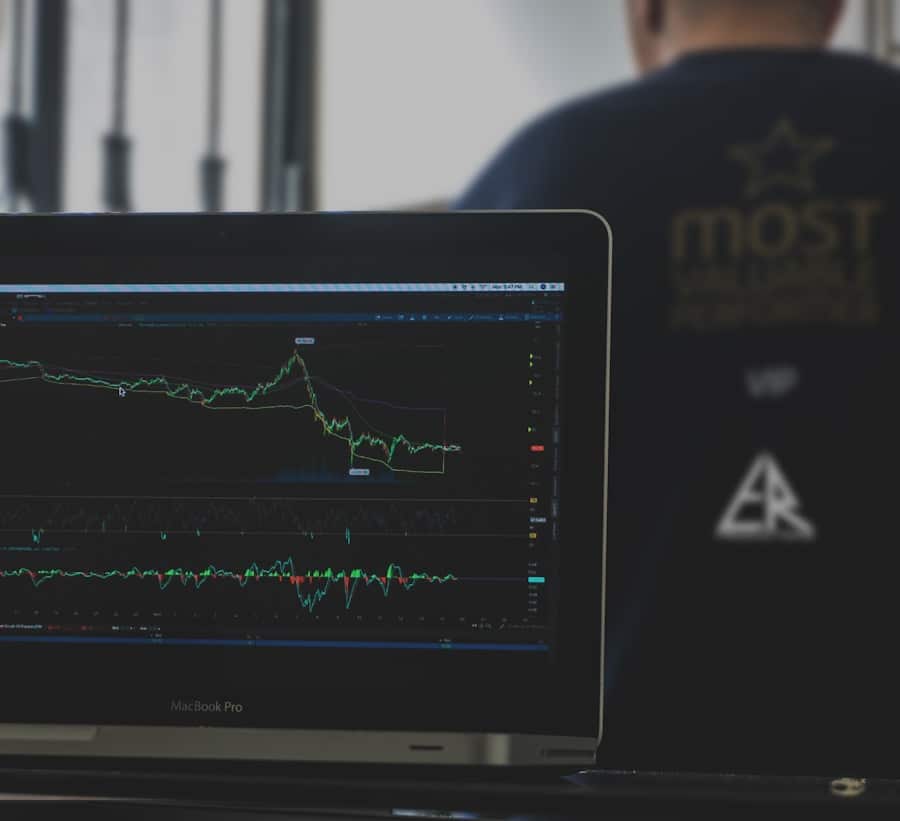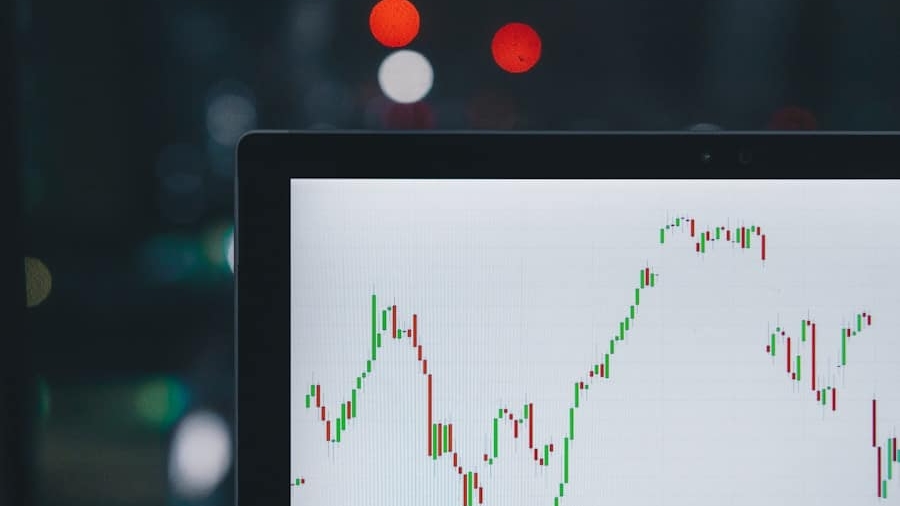The integration of artificial intelligence (AI) into stock market prediction has revolutionized the way investors analyze and interpret market data.
However, the advent of AI technologies has introduced a new paradigm, enabling investors to leverage vast amounts of data and sophisticated algorithms to make more informed decisions.
AI systems can process information at an unprecedented scale and speed, allowing for real-time analysis that was previously unattainable. This shift not only enhances the accuracy of predictions but also democratizes access to advanced analytical tools that were once reserved for institutional investors. AI’s role in stock market prediction encompasses various methodologies, including machine learning, natural language processing, and neural networks.
These technologies can identify patterns and trends in historical data, assess market sentiment through social media and news articles, and even predict future price movements based on complex algorithms. As a result, AI has become an indispensable tool for traders and investors seeking to gain a competitive edge in an increasingly volatile market. The ability to analyze multifaceted data sets and derive actionable insights has made AI a game-changer in the financial sector, prompting a reevaluation of traditional investment strategies.
Key Takeaways
- AI has revolutionized stock market prediction by using advanced algorithms to analyze data and make predictions.
- Machine learning plays a crucial role in stock market analysis by enabling AI systems to learn from historical data and make accurate predictions.
- Data sources for AI stock market prediction include financial statements, market data, news sentiment, and macroeconomic indicators, while variables used include price movements, trading volumes, and volatility.
- AI predictions have high accuracy but also come with limitations such as overfitting, data biases, and unexpected market events.
- Case studies of successful AI stock market predictions demonstrate the potential for AI to outperform traditional methods and generate significant returns for investors.
- Ethical considerations and risks of AI in stock market prediction include potential market manipulation, data privacy issues, and the impact on human decision-making.
- The future of AI in stock market prediction is expected to involve more advanced algorithms, improved data sources, and increased adoption by investors and financial institutions.
- Investors can utilize AI predictions for better decision-making by incorporating them into their investment strategies, risk management, and portfolio optimization.
The Role of Machine Learning in Stock Market Analysis
Pattern Recognition and Predictive Accuracy
For instance, supervised learning techniques can be employed to train models on historical stock prices and corresponding market conditions, allowing them to recognize patterns that may indicate future price movements.
Uncovering Hidden Relationships
By utilizing vast datasets that include not only price history but also economic indicators, trading volumes, and even geopolitical events, machine learning models can uncover relationships that human analysts might overlook. Moreover, unsupervised learning techniques can identify clusters or anomalies within the data that may signal emerging trends or potential risks. For example, clustering algorithms can group stocks with similar performance characteristics, helping investors identify sectors that are poised for growth or decline.
Dynamic Adaptability in Trading Strategies
Reinforcement learning, another machine learning approach, allows algorithms to make decisions based on trial and error, optimizing trading strategies over time. This dynamic adaptability is particularly valuable in the fast-paced world of stock trading, where market conditions can change rapidly and unpredictably.
Data Sources and Variables Used in AI Stock Market Prediction

The effectiveness of AI in stock market prediction is largely contingent upon the quality and diversity of the data it utilizes. A wide array of data sources is available to AI systems, ranging from traditional financial metrics to alternative data sets that provide additional context. Historical stock prices remain a cornerstone of analysis, but they are often supplemented with other variables such as trading volume, volatility indices, and macroeconomic indicators like interest rates and inflation rates.
These traditional data points help establish a foundational understanding of market behavior. In recent years, alternative data sources have gained prominence in stock market prediction. Social media sentiment analysis, for instance, leverages platforms like Twitter and Reddit to gauge public sentiment regarding specific stocks or the market as a whole.
Natural language processing techniques can analyze the tone and context of social media posts or news articles to assess how public perception may influence stock prices.
By integrating these diverse data sources, AI systems can create a more comprehensive view of market dynamics.
Understanding the Accuracy and Limitations of AI Predictions
While AI has demonstrated remarkable capabilities in predicting stock market trends, it is essential to recognize its limitations. The accuracy of AI predictions can vary significantly based on several factors, including the quality of the input data, the complexity of the algorithms used, and the inherent unpredictability of financial markets. For instance, while machine learning models can identify historical patterns, they may struggle to account for unprecedented events such as economic crises or global pandemics that disrupt established trends.
This unpredictability underscores the importance of using AI as a complementary tool rather than a standalone solution. Moreover, overfitting is a common challenge in machine learning models where an algorithm becomes too tailored to historical data, resulting in poor performance on unseen data. This phenomenon highlights the need for rigorous validation techniques and continuous model refinement to ensure that predictions remain relevant in changing market conditions.
Additionally, the reliance on historical data can lead to biases that may skew predictions if not carefully managed. Investors must approach AI-generated predictions with a critical mindset, understanding that while these tools can enhance decision-making processes, they are not infallible.
Case Studies of Successful AI Stock Market Predictions
Several case studies illustrate the successful application of AI in stock market predictions, showcasing its potential to generate significant returns for investors. One notable example is the use of machine learning algorithms by hedge funds such as Renaissance Technologies. This firm employs sophisticated quantitative models that analyze vast datasets to identify trading opportunities across various asset classes.
Their Medallion Fund has consistently outperformed the market by leveraging AI-driven strategies that adapt to changing conditions. Another compelling case is that of Sentifi, a financial technology company that utilizes AI to analyze social media sentiment around stocks. By monitoring millions of online conversations and news articles, Sentifi provides insights into how public sentiment correlates with stock price movements.
In 2020, during the COVID-19 pandemic’s onset, Sentifi’s algorithms detected a surge in negative sentiment surrounding travel stocks like Delta Airlines and Carnival Corporation before their prices plummeted. Investors who acted on this information were able to mitigate losses by adjusting their portfolios ahead of the downturn.
Ethical Considerations and Risks of AI in Stock Market Prediction

Market Manipulation and Volatility
High-frequency trading firms often utilize AI algorithms to execute trades at lightning speed, which can lead to flash crashes or exacerbate market volatility if not properly regulated.
The lack of transparency surrounding these algorithms poses challenges for regulators seeking to ensure fair market practices. Additionally, there are concerns about data privacy and security when utilizing alternative data sources for stock predictions.
Data Privacy and Security Concerns
The use of social media sentiment analysis raises questions about consent and the ethical implications of leveraging personal opinions for financial gain.
Mitigating Risks and Ensuring Ethical Standards
Furthermore, reliance on biased or incomplete datasets can perpetuate systemic inequalities within financial markets. As AI continues to evolve in this domain, it is crucial for stakeholders—including investors, regulators, and technology developers—to engage in discussions about ethical standards and best practices to mitigate these risks.
The Future of AI in Stock Market Prediction
Looking ahead, the future of AI in stock market prediction appears promising yet complex. As technology continues to advance, we can expect even more sophisticated algorithms capable of processing larger datasets with greater accuracy. The integration of quantum computing may further enhance predictive capabilities by enabling faster computations and more complex modeling techniques.
Additionally, advancements in natural language processing will likely improve sentiment analysis tools, allowing investors to gauge public opinion more effectively. However, as AI becomes more prevalent in financial markets, it will also necessitate increased regulatory scrutiny to ensure fair practices and mitigate risks associated with algorithmic trading. The development of ethical guidelines will be essential to address concerns related to transparency and accountability in AI-driven decision-making processes.
Furthermore, as investors become more reliant on AI predictions, there will be an ongoing need for education and awareness regarding the limitations and potential biases inherent in these systems.
How Investors Can Utilize AI Predictions for Better Decision Making
Investors looking to harness the power of AI predictions for better decision-making should adopt a multifaceted approach that combines technology with traditional investment principles. First and foremost, it is crucial for investors to understand the underlying algorithms driving AI predictions and their limitations. By gaining insights into how these models operate, investors can make more informed decisions about when to trust or question their outputs.
Moreover, integrating AI predictions with fundamental analysis can enhance investment strategies by providing a more holistic view of potential opportunities and risks. For instance, while an AI model may indicate a bullish trend for a particular stock based on technical indicators or sentiment analysis, investors should also consider fundamental factors such as earnings reports or industry trends before making investment decisions. This balanced approach allows investors to leverage the strengths of AI while remaining grounded in traditional analytical frameworks.
Additionally, investors should remain vigilant about continuously monitoring their portfolios and adjusting their strategies based on evolving market conditions and new information generated by AI systems. By combining human intuition with advanced analytical tools, investors can navigate the complexities of the stock market more effectively and position themselves for long-term success in an increasingly data-driven landscape.
If you are interested in the latest technology trends, you may also want to check out this article about unlocking a new world of possibilities with the Samsung Galaxy Chromebook. This article explores the features and capabilities of this innovative device, highlighting how it can enhance your productivity and creativity. Just like AI is revolutionizing stock market predictions, the Samsung Galaxy Chromebook is revolutionizing the way we work and play.
FAQs
What is AI?
AI, or artificial intelligence, refers to the simulation of human intelligence in machines that are programmed to think and act like humans. This includes tasks such as learning, problem-solving, and decision-making.
How is AI used in predicting stock market trends?
AI is used in predicting stock market trends by analyzing large amounts of data, identifying patterns, and making predictions based on historical data and current market conditions. This can help investors make more informed decisions about buying and selling stocks.
What are the benefits of using AI for predicting stock market trends?
Some benefits of using AI for predicting stock market trends include increased accuracy in predictions, the ability to process and analyze large amounts of data quickly, and the potential to identify patterns and trends that may not be apparent to human analysts.
How accurate is AI in predicting stock market trends?
AI has been shown to predict stock market trends with high accuracy, often outperforming traditional methods of analysis. However, it’s important to note that no prediction method, including AI, can guarantee 100% accuracy in predicting stock market movements.
What are some potential limitations of using AI for predicting stock market trends?
Some potential limitations of using AI for predicting stock market trends include the risk of overfitting data, the reliance on historical data that may not accurately reflect future market conditions, and the potential for unexpected events or market volatility to impact predictions.

